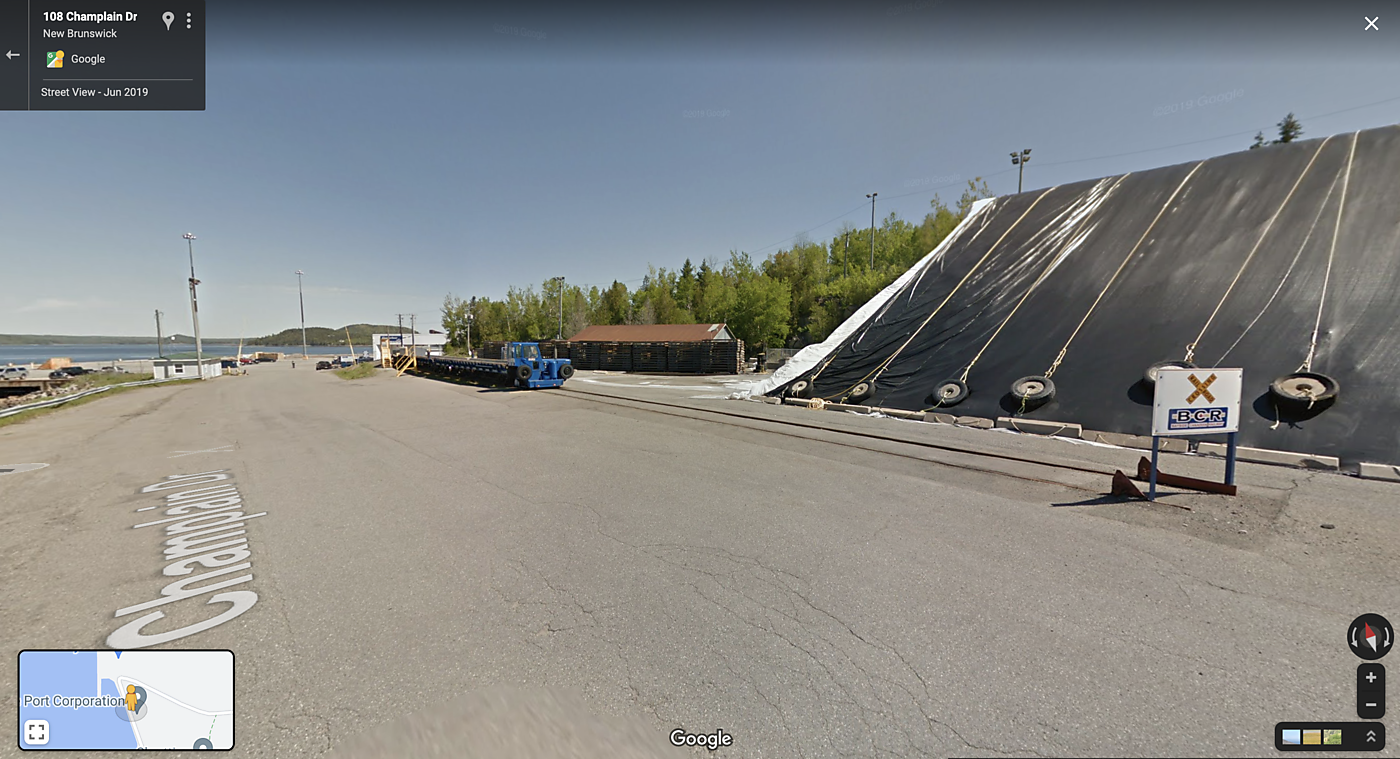In a saner world, sending frozen fish from Alaska to the East Coast would be a relatively simple undertaking. Fish or other types of seafood would be placed onto ships in Alaska and dispatched to the other side of the country for unloading and eventual transport to consumers. But domestic water transportation is subject to the Jones Act, which means this process is not so straightforward. Ships both capable of handling items requiring cold storage and compliant with the law’s strictures are expensive and few in number. And none operate regularly scheduled service from Alaska to destinations beyond the West Coast.
American Seafoods Company (ASC), however, has been able to find a way around the Jones Act morass. For the past 20 years, the company has loaded fish in Dutch Harbor, Alaska onto foreign ships that are then sent to New Brunswick, Canada via the Panama Canal. From there—and this is the interesting part of the arrangement—the seafood is offloaded and placed onto a very short stretch of railroad track, taken up and down the railroad on a journey to nowhere, then offloaded again and placed on trucks for transportation to the United States.
That is, until last month when the Customs and Border Protection agency apparently hit one of ASC’s subsidiaries, an affiliated freight forwarding company, and other firms in ASC’s supply chain with fines totaling approximately $350 million for alleged Jones Act violations. To place that number in perspective, the previous largest penalty ever assessed for a violation of the law was $10 million.
At issue is a little-known part of the Jones Act called the third proviso. At its most basic, the proviso states that the law does not apply to merchandise transported between points within the continental United States, including Alaska, if the journey involves the use of Canadian rail lines. ASC states that the short piece of railroad in New Brunswick qualifies under the proviso and that the entire arrangement is aboveboard, while CBP—which has yet to comment on the matter—apparently feels differently. One of ASC’s subsidiaries and a freight forwarder have taken legal action to halt the fines, and a hearing on the matter is set for September 17th.
A few thoughts on the matter:
The Jones Act disincentivizes domestic supply chains. If the American Seafoods Company is denied access to efficient international shipping via the third proviso, it will almost certainly constrain the company’s ability to sell its products to other parts of the United States. Indeed, with the New Brunswick option currently off the table, plaintiffs in the case against the CBP claim that the Alaskan seafood will instead be exported (thus freeing it of Jones Act restrictions) and East Coast seafood needs met with imports from Russia and China. While citing those two countries may be a ploy to raise geopolitical hackles, it certainly wouldn’t be the first occurrence of the Jones Act distorting trading patterns by encouraging imports over domestic sourcing.
The episode highlights the Jones Act’s high costs. By sending Alaskan seafood to New Brunswick both the ship—and trucks used to transport the fish after their unloading—must travel a greater distance to reach consumers. And then there is the absurdity of loading and unloading the seafood for its train ride to nowhere. That this arrangement is still preferable to the use of Jones Act-compliant shipping direct to U.S. ports illustrates the costs of using such transportation.
Waterborne trade between the East and West Coasts shouldn’t be so difficult. A 2017 Congressional Research Service report highlights the paucity of domestic cargo transiting on ships through the Panama Canal. In contrast to the seldom usage of Jones Act cargo ships via the waterway, the report points out that “U.S. trade with South America utilizing the Canal has quadrupled since 1960.” That fact, along with ASC’s ability to ship goods from Alaska to Canada’s East Coast when presented with non-Jones Act options, would seem to speak to the Jones Act’s suffocating effect on such commerce.
It will certainly be interesting to see how the legal wrangling over this strange episode unfolds. The Jones Act may be doing a lousy job of promoting a vibrant domestic maritime industry, but it’s sure keeping the lawyers busy.

